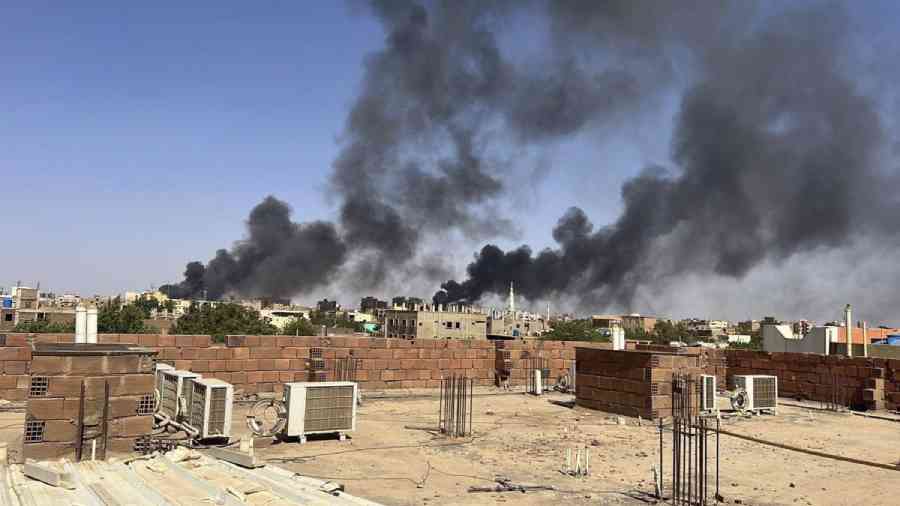As war consumes Sudan, nations from around the world have mobilised swiftly.
Egypt scrambled to bring home 27 of its soldiers, who had been seized by one of Sudan’s warring parties. A Libyan warlord offered weapons to his favoured side, American officials said.
Diplomats from Africa, West Asia and the West have appealed for a halt to the fighting that has reduced parts of the capital, Khartoum, to a smoking battlefield.
Even the leader of Russia’s most notorious private military company, Wagner, has got involved. Publicly, he has offered to help mediate between the rival generals fighting for power, but American officials say he has offered weapons, too.
“The UN and many others want the blood of the Sudanese,” Yevgeny Prigozhin, the Wagner founder, said in a statement. Without a hint of irony, Prigozhin, who is waging a brutal military campaign on behalf of Russia in Ukraine, added: “I want peace.”
The rush of international activity may seem sudden, but it reflects a dynamic that loomed over the country well before its two leading generals turned on each other last week: Sudan has been up for grabs for years.
The revolution of 2019 — in which tens of thousands of protesters ended the three-decade dictatorship of President Omar Hasan al-Bashir — was supposed to usher in a bright and democratic future. But it also spelt new opportunities for outside powers to pursue their own interests in Africa’s third largest country — a nation strategically perched on the Nile and the Red Sea, with vast mineral wealth and agricultural potential, and which only recently emerged from decades of sanctions and isolation.
Russia sought naval access for its warships in Sudan’s Red Sea ports. Wagner gave armoured vehicles and training in return for lucrative gold mining concessions. The UAE paid one of the warring Sudanese generals, Lieutenant General Mohamed Hamdan, to help it fight in Yemen, officials say. Egypt backed the other general, General Abdul Fattah al-Burhan, sending soldiers and warplanes in a highly contested show of support.
And western countries pushed what may have been the most difficult idea of all — the transition to democracy — while also hoping to counter the expanding influence of China and Russia in Africa.
“Everyone wanted a chunk of Sudan and it couldn’t take all the meddling,” said Magdi el-Gizouli, a Sudanese analyst at the Rift Valley Institute, a research group. “Too many competing interests and too many claims,” he added, “then the fragile balance imploded, as you can see now.”
As some foreign powers picked sides, and even delivered weapons, they weakened Sudan’s pro-democracy forces and helped tilt the country towards war by bolstering the military rivals now fighting it out on the Khartoum streets.
In the past week, more than 400 people have died and 3,500 have been injured, according to the UN, in pitched battles between the two sides — the regular army led by General al-Burhan and the Rapid Support Forces paramilitaries led by Lieutenant General Hamdan.
Among the most important foreign players in Sudan is the United Arab Emirates, the oil-rich Persian Gulf country that has aggressively expanded its influence in the Horn of Africa in recent years.
Its interest in Sudan goes back over a decade, starting with the country’s vast agricultural potential, which the Emiratis hope can ease their food supply worries. But the Emiratis fell out with al-Bashir after he refused to back them in their dispute with their neighbour, Qatar. Once he was ousted, the Emirates and Saudi Arabia announced $3 billion in aid.
Publicly, the Emiratis have not taken a side in Sudan’s power struggles, and are part of a diplomatic group known as the Quad. The group, which includes the US, Britain and Saudi Arabia, had until recently tried to push Sudan back to civilian rule.
But at the same time, officials say, the Emiratis also helped shore up General Hamdan, the leader of a feared militia accused of atrocities in Darfur. Over the years, he has expanded his war chest through business dealings channelled through Dubai.
New York Times News Service










